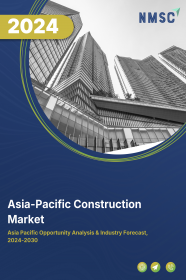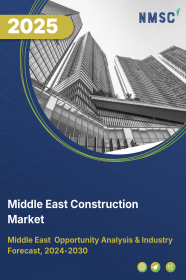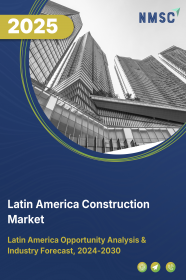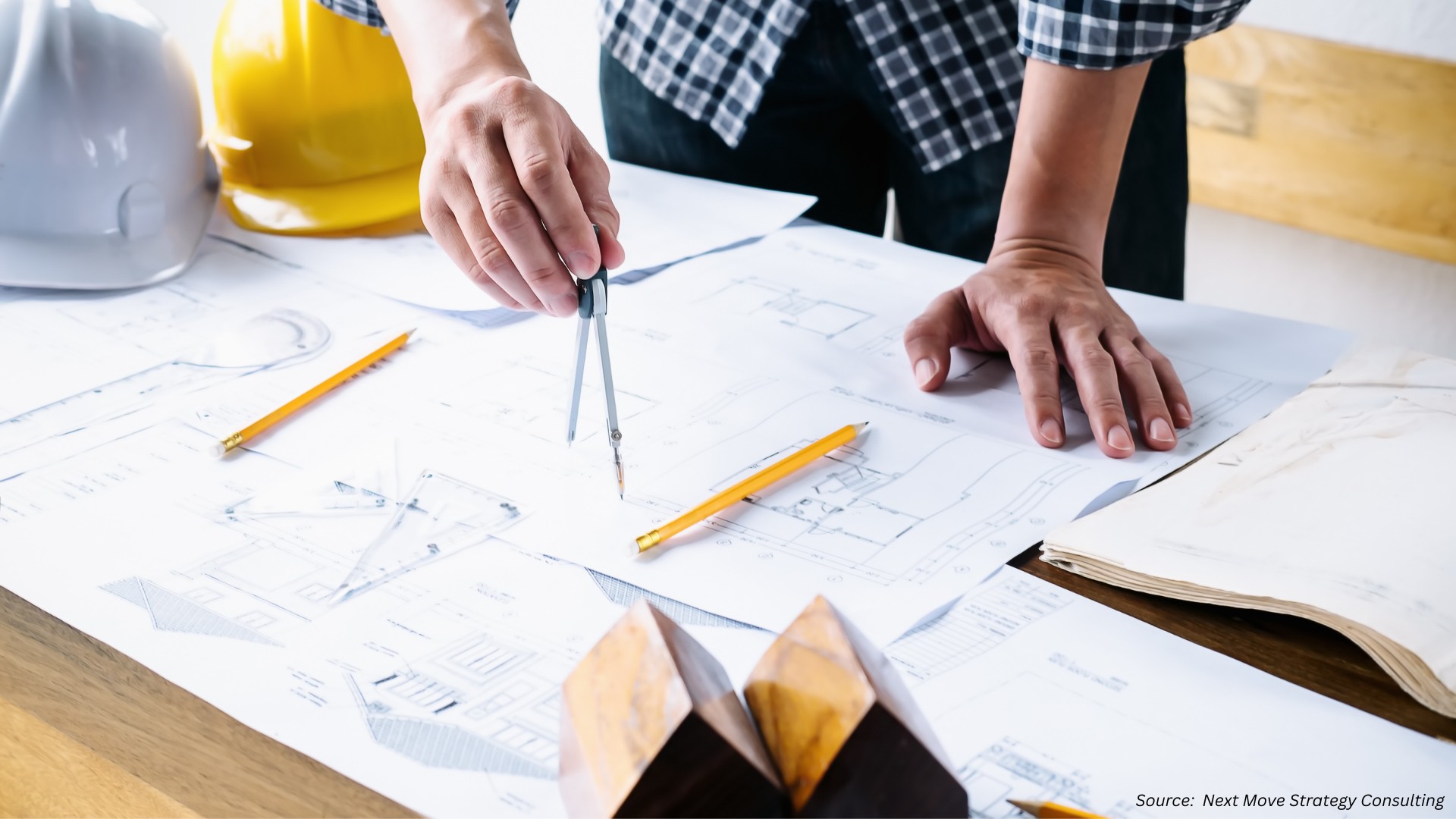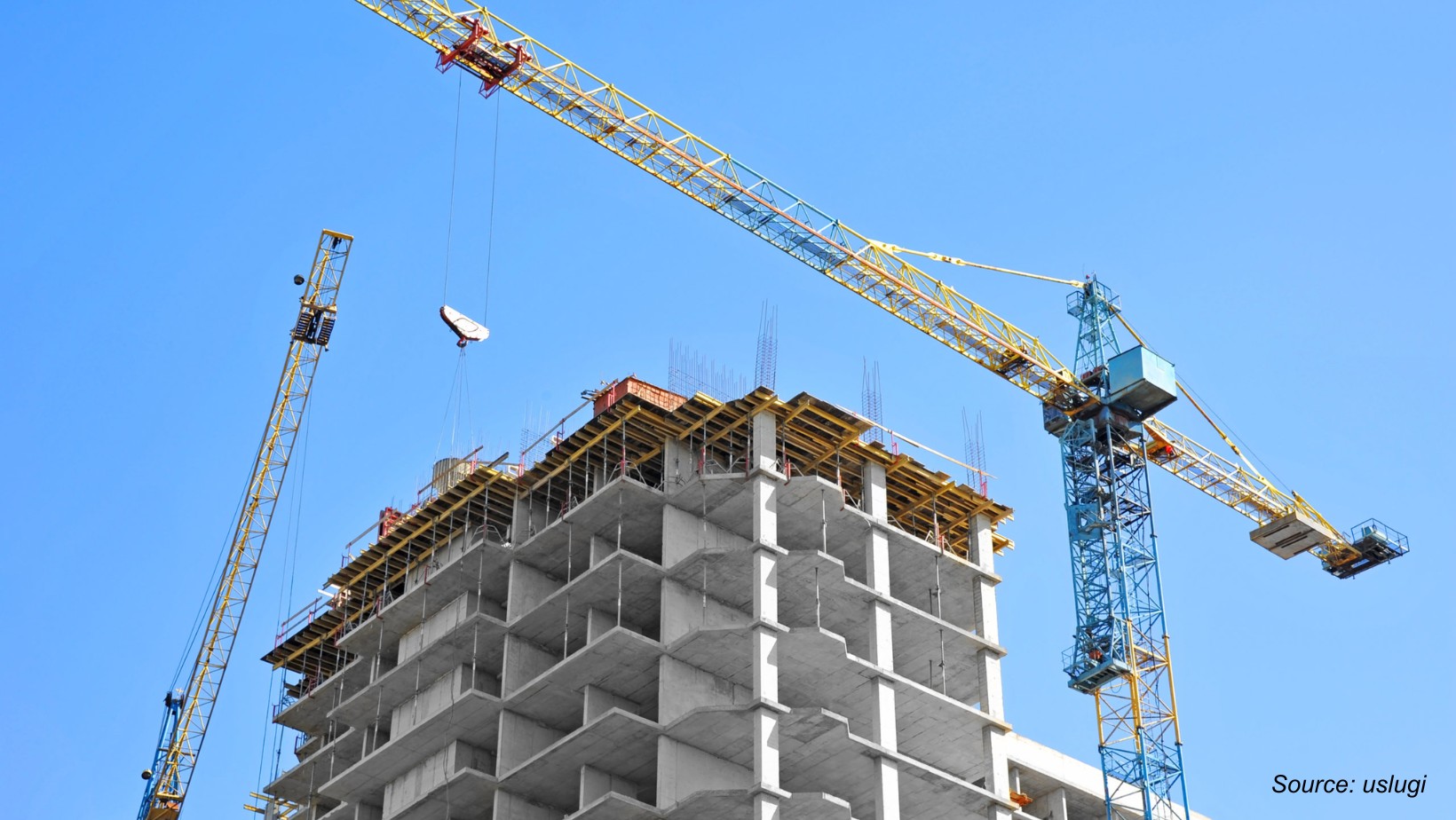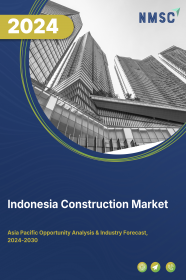
Indonesia Construction Market by Type (Renovation, and New Construction), by Sector (Real Estate and Others), by Construction Method (Traditional Construction, Prefabricated/Modular Construction, 3D Printed Construction, Green/Sustainable Construction), and by Type of Contractor (Small Contractor, Medium Contractor and Large Contractor) – Country Industry Trends and Forecast, 2025–2030
Industry: Construction & Manufacturing | Publish Date: 09-Oct-2025 | No of Pages: 153 | No. of Tables: 117 | No. of Figures: 62 | Format: PDF | Report Code : CM2221
Indonesia Construction Industry Overview
The Indonesia Construction Market size was valued at USD 273.15 billion in 2024, and is projected to grow to USD 312.84 billion by 2025. Additionally, the industry is expected to continue its growth trajectory, reaching USD 535.98 billion by 2030, with a CAGR of 11.4% from 2025 to 2030.
The market is experiencing rapid growth, primarily driven by substantial government-led infrastructure investments, including the development of the new capital city Nusantara and major transportation projects like the Jakarta elevated toll road and the National Railway Master Plan.
With record-high infrastructure allocations in the 2024 and 2025 state budgets and increased foreign and domestic investments, particularly in transportation and renewable energy, the market is seeing significant momentum.
However, growth is challenged by complex regulatory frameworks that cause delays and increased costs. At the same time, the integration of digital technologies such as BIM, AI, IoT, and cloud solutions is presenting lucrative opportunities for efficiency and innovation across construction processes.
Government’s Strategic Initiative for Fast‑Tracking Large‑Scale Infrastructure Projects
Indonesia’s construction sector is being significantly propelled by the government’s focused approach to infrastructure build‑out. Central to this strategy is prioritizing large‑scale transportation corridors (highways, rail, ports), energy‑generation facilities (power plants, grid upgrades), and the phased development of the new capital city. The Ministry of Public Works and Housing (PUPR) has unlocked dedicated funding lines and streamlined permitting to shorten project cycles. This public‑sector momentum not only accelerates delivery timelines but also underpins broad‑based economic expansion through enhanced connectivity and urban modernization.
Rapid Urbanization and Booming Real Estate Demand
Parallel to public‑sector investment, Indonesia’s accelerating urban migration and rising middle‑class incomes are driving explosive demand for residential, commercial, and mixed‑use developments—particularly in Greater Jakarta, Surabaya, and Makassar. Developers are racing to supply affordable housing, high‑end condominiums, and integrated township projects. This demographic shift has also spurred a wave of office towers, retail malls, and logistics parks to service expanding metropolitan populations. As land values climb in key urban corridors, construction activity is intensifying to meet both housing shortages and evolving lifestyle needs.
Complex Regulatory Landscape Slows Project Implementation
Despite the sector’s robust potential, regulatory bottlenecks continue to hamper growth. Developers often face intricate approval procedures involving multiple agencies, ranging from environmental clearance to zoning and land-use permits. Even with the digitization of permit processes under the OSS system, fragmented coordination between national and local authorities contributes to lengthy delays, particularly for large-scale infrastructure. Additionally, variations in local policies and enforcement of building codes create uncertainty, complicating project planning and execution.
Digitalization and BIM Integration Transforming Construction Efficiency
Indonesia’s construction market is entering a new era driven by digital transformation. Spearheaded by national initiatives like the BIM Roadmap, the adoption of Building Information Modeling (BIM) is revolutionizing project planning, coordination, and execution. Public megaprojects are increasingly leveraging BIM for design optimization, cost control, and risk management, leading to improved efficiency and reduced delays. Enhanced by complementary technologies such as IoT sensors, AI-driven analytics, and cloud-based collaboration platforms, the sector is evolving toward smarter, more sustainable construction practices that offer higher quality outputs and global competitiveness.
Competitive Landscape
The key players operating in the Indonesia construction industry include PT Wijaya Karya (Persero) Tbk, PT Adhi Karya (Persero) Tbk., PT Waskita Karya (WSKT), Hutama Karya, PT TOTAL BANGUN PERSADA Tbk., AGUNG PODOMORO GROUP, Pakuwon Jati, PT Ciputra Development (CTRA), POSCO E&C, PT PP (Persero) Tbk, PT Brantas Abipraya Persero., PT Surya Semesta Internusa Tbk., Mitra Gunung Makmur, PT ACSET Indonusa Tbk., PT Jaya Obayashi, and others.
Indonesia Construction Market Key Segments
By Type
-
Renovation
-
New Construction
By Sector
-
Real Estate
-
Residential
-
Affordable
-
Luxury
-
-
Commercial
-
Retail Buildings
-
Office Buildings
-
Hospitality
-
Healthcare Facilities
-
Educational Institutes
-
Entertainment Ventures
-
-
-
Infrastructure
-
Transportation
-
Airport
-
Port
-
Rail
-
Road
-
-
Water and Wastewater
-
Energy
-
Telecommunication
-
-
Industrial
-
Manufacturing Plant
-
Warehouses
-
Power Plants
-
Oil Refineries
-
Chemical Plants
-
By Construction Method
-
Traditional Construction
-
Prefabricated/Modular Construction
-
3D Printed Construction
-
Green/Sustainable Construction
By Type of Contractor
-
Small Contractor
-
Medium Contractor
-
Large Contractor
Key Players
-
PT Wijaya Karya (Persero) Tbk
-
PT Adhi Karya (Persero) Tbk.
-
PT Waskita Karya (WSKT)
-
Hutama Karya
-
PT TOTAL BANGUN PERSADA Tbk.
-
AGUNG PODOMORO GROUP
-
Pakuwon Jati
-
PT Ciputra Development (CTRA)
-
POSCO E&C
-
PT PP (Persero) Tbk
-
PT Brantas Abipraya Persero.
-
PT Surya Semesta Internusa Tbk.
-
Mitra Gunung Makmur
-
PT ACSET Indonusa Tbk.
-
PT Jaya Obayashi.
REPORT SCOPE AND SEGMENTATION:
|
Parameters |
Details |
|
Market Size in 2024 |
USD 273.15 Billion |
|
Revenue Forecast in 2030 |
USD 535.98 Billion |
|
Growth Rate |
CAGR of 11.4% from 2025 to 2030 |
|
Analysis Period |
2024–2030 |
|
Base Year Considered |
2024 |
|
Forecast Period |
2025–2030 |
|
Market Size Estimation |
Billion (USD) |
|
Growth Factors |
|
|
Companies Profiled |
15 |
|
Market Share |
Available for 10 companies |
|
Customization Scope |
Free customization (equivalent up to 80 working hours of analysts) after purchase. Addition or alteration to country, regional, and segment scope. |
|
Pricing and Purchase Options |
Avail customized purchase options to meet your exact research needs. |

















 Speak to Our Analyst
Speak to Our Analyst



